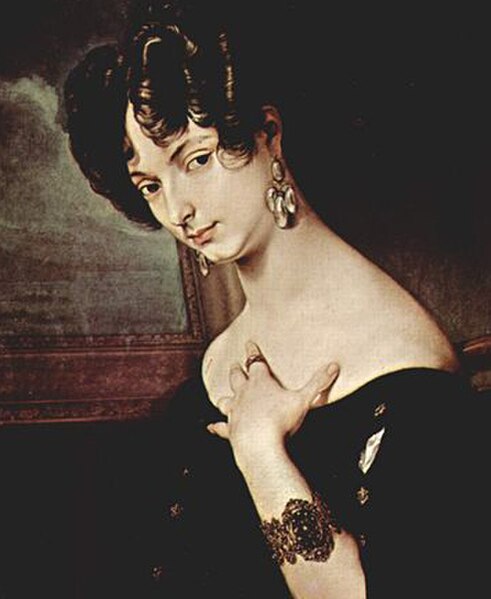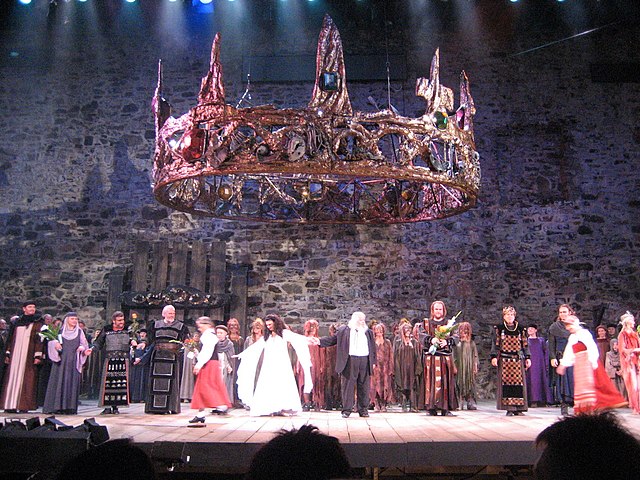I puritani is an 1835 opera by Vincenzo Bellini. It was originally written in two acts and later changed to three acts on the advice of Gioachino Rossini, with whom the young composer had become friends. The music was set to a libretto by Count Carlo Pepoli, an Italian émigré poet whom Bellini had met at a salon run by the exile Princess Belgiojoso, which became a meeting place for many Italian revolutionaries. The opera is based on Têtes Rondes et Cavaliers, a historical play written by Jacques-François Ancelot and Joseph Xavier Saintine and set in the English Civil War, which some sources state was based on Walter Scott's 1816 novel Old Mortality, while others state that there is no connection.
The Hall of Arms (act 1, scene 3) in the original 1835 production
Vincenzo Bellini
Cristina Trivulzio Belgiojoso 1832, by Francesco Hayez (detail)
In 1829 the Théâtre-Italien was performing in the first Salle Favart
Opera is a form of theatre in which music is a fundamental component and dramatic roles are taken by singers. Such a "work" is typically a collaboration between a composer and a librettist and incorporates a number of the performing arts, such as acting, scenery, costume, and sometimes dance or ballet. The performance is typically given in an opera house, accompanied by an orchestra or smaller musical ensemble, which since the early 19th century has been led by a conductor. Although musical theatre is closely related to opera, the two are considered to be distinct from one another.
Macbeth at the Savonlinna Opera Festival in St. Olaf's Castle, Savonlinna, Finland, in 2007
La Scala of Milan
Palais Garnier of the Paris Opéra
Berlin State Opera








